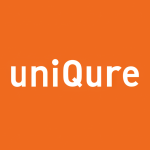Welcome to our dedicated page for Uniqure news (Ticker: QURE), a resource for investors and traders seeking the latest updates and insights on Uniqure stock.
uniQure N.V. (NASDAQ: QURE) is a gene therapy company that regularly issues news on its clinical programs, regulatory interactions, and financing activities. The company describes itself as delivering single‑treatment gene therapies with potentially curative results and has reported that the approvals of its gene therapy for hemophilia B mark a major milestone in genomic medicine. News about uniQure often highlights progress in its pipeline for Huntington’s disease, refractory temporal lobe epilepsy, ALS, Fabry disease, and other severe conditions.
A major focus of QURE news coverage is AMT‑130, uniQure’s investigational gene therapy for Huntington’s disease. Press releases and related SEC filings detail pivotal Phase I/II trial results, including statistically significant slowing of disease progression at 36 months in high‑dose cohorts compared to a propensity score‑matched external control, as well as trends in motor and cognitive endpoints and biomarker changes. Investors also see updates on the company’s regulatory dialogue with the U.S. Food and Drug Administration, including pre‑BLA and Type A meetings and feedback on the adequacy of Phase I/II data for a potential Biologics License Application.
Beyond AMT‑130, uniQure news includes early‑stage data and enrollment updates for AMT‑260 in refractory mesial temporal lobe epilepsy, AMT‑191 in Fabry disease, and AMT‑162 in SOD1 ALS. Corporate news items cover public offerings of ordinary shares and pre‑funded warrants, amendments to loan facilities, and quarterly financial results. This QURE news page aggregates such disclosures so readers can follow clinical milestones, regulatory developments, and capital markets events that shape uniQure’s gene therapy business over time.
uniQure N.V. (NASDAQ: QURE) announced the granting of equity awards to 24 employees, totaling 40,000 restricted stock units (RSUs) and options for 26,000 ordinary shares on December 7, 2022. This follows additional grants made on October 31 and September 27, 2022. The options have exercise prices of $23.73, $18.62, and $18.04, respectively, based on closing prices on the grant dates. The options will vest over four years, while RSUs will vest over three years. These awards serve as inducements for new hires, emphasizing the company's growth strategy.
uniQure N.V. has announced a positive opinion from the European Medicines Agency's Committee for Medicinal Products for Human Use (CHMP) for its gene therapy, etranacogene dezaparvovec, aimed at treating hemophilia B. If approved, it will be the first licensed gene therapy for this condition in Europe. The therapy has shown a 64% reduction in annual bleeds and allows 96% of patients to discontinue routine prophylaxis. The therapy is already approved in the U.S. and is produced by uniQure for its commercial partner, CSL.
CSL announced significant findings from the 24-month follow-up of the pivotal HOPE-B study for HEMGENIX, the first gene therapy approved for hemophilia B. The treatment resulted in sustained mean factor IX activity levels (36.7 IU/dL) and a 64% reduction in bleeding rates (ABR) among participants. Safety data indicated no serious treatment-related adverse effects. With 94% of patients discontinuing prophylaxis, HEMGENIX shows promise for long-term efficacy and safety in hemophilia B treatment, highlighting CSL's commitment to innovative therapies.
uniQure (NASDAQ: QURE) recently hosted a virtual investor event highlighting its gene therapy AMT-260, targeting refractory temporal lobe epilepsy. The event included insights from leading clinical experts and showcased promising preclinical data indicating AMT-260's efficacy and safety. The company plans to submit an investigational new drug application for AMT-260 and initiate clinical development in 2023. Additionally, uniQure reported advancements in its manufacturing platform, enhancing efficiency and reducing costs for AAV therapies.
uniQure N.V. announced the FDA's approval of HEMGENIX® (etranacogene dezaparvovec-drlb), a groundbreaking gene therapy for hemophilia B. This one-time treatment offers significant benefits, including a reduction in annual bleeding rates and discontinuation of prophylactic therapy for 94% of trial participants. Developed through a comprehensive clinical program, HEMGENIX enables patients to produce their own factor IX, improving their quality of life. uniQure will supply CSL for commercialization, having received $500 million in payments and potential future royalties valued at up to $1.5 billion.
The FDA has approved HEMGENIX (etranacogene dezaparvovec-drlb), the first one-time gene therapy for adults with hemophilia B, allowing eligible patients to produce their own factor IX. This treatment reduces the frequency of annual bleeding episodes and eliminates the need for prophylactic therapies. In the pivotal HOPE-B trial, 94% of patients discontinued factor IX prophylaxis post-treatment, with a 54% reduction in the annualized bleeding rate. HEMGENIX represents a significant advancement in hemophilia B treatment, enhancing patient outcomes with a single infusion.
uniQure N.V. (NASDAQ: QURE) announced a Virtual Research & Development Event on November 29, 2022, from 8:30 a.m. to 10:30 a.m. EST, focusing on refractory temporal lobe epilepsy (rTLE) and its preclinical gene therapy candidate AMT-260. The event will feature Dr. Ellen Bubrick, a clinical expert from Brigham and Women’s Hospital, alongside presentations from uniQure’s R&D team and COO Pierre Caloz on advancements in the AAV manufacturing platform. The event will be webcast live and available for replay on uniQure’s website.
VectorY Therapeutics appoints Sander van Deventer as Chief Executive Officer, succeeding Alexander Vos. Van Deventer, a co-founder with 25 years of drug development experience, aims to advance the company's innovative vectorized antibody technology for neurodegenerative diseases, including ALS and Huntington's disease. Other leadership changes include Elena Ritsou as Chief Corporate Officer, Barbara Sanders promoted to Chief Technology Officer, and Frank Walsh joining as an Independent Board Member. These appointments are expected to strengthen VectorY’s strategic direction.
uniQure N.V. (NASDAQ: QURE) reported a net loss of $47.9 million for Q3 2022, with revenues of $1.4 million. The company resumed higher-dose patient enrollment for AMT-130 in Huntington's disease following a DSMB recommendation. The EMA awarded a Good Manufacturing Practice certificate for their Lexington facility, crucial for their gene therapy manufacturing. Cash and equivalents stood at $440.3 million, expected to fund operations until mid-2025. Upcoming events include a virtual investor presentation on November 29, 2022, focused on AMT-260 for refractory temporal lobe epilepsy.
Summary not available.

